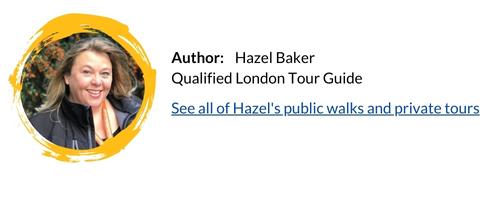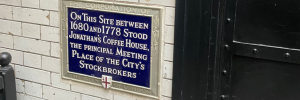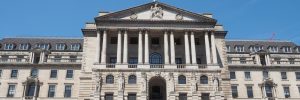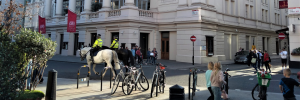The Boiling Point of Public Unrest: Spa Fields, 1816
Let’s set the scene. The year is 1816, and London is a city awash in social and political ferment. A large crowd gathers at Spa Fields for what was intended to be a peaceful demonstration, organised by secret societies like the Spencean Philanthropists, who advocated for radical reform. Frustration among the working classes had reached a boiling point due to deteriorating living conditions and a lack of political representation. These secret societies saw this gathering as an opportunity to articulate their grievances and push for substantial political change.
However, as the crowd’s numbers swelled, the situation devolved into pandemonium. Unrest spilled onto the streets, riots broke out, and there was even an audacious attempt to seize the Tower of London. The British government, duly alarmed by the unfolding chaos and the prospect of a full-scale rebellion, sprang into action. Law enforcement agencies targeted the key instigators of the unrest, making multiple arrests.
The Cato Street Conspiracy: Revolution Foiled
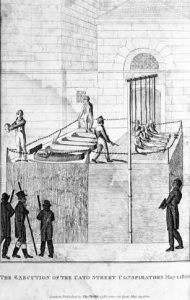
Among those arrested was Arthur Thistlewood, the charismatic leader of the Spencean Philanthropists. Thistlewood and his associates were charged and tried in what became popularly known as the “Cato Street Conspiracy,” named after the street where these revolutionaries convened. The trial revealed their audacious aims, which included plans to assassinate members of the government and inaugurate a revolutionary regime.
The state’s reprisal was uncompromising. Thistlewood and four of his compatriots were executed, while others were either incarcerated or exiled to penal colonies. The underlying message was clear: the government was prepared to take severe measures to prevent any attempts to destabilise it.
The Ripples of Consequence: The Great Reform Act of 1832
But the ramifications of the Cat Street Conspiracy reverberated far beyond the immediate circle of plotters and the government’s response. It galvanised public opinion and brought to the fore the urgent need for political reform. The social unrest and the authorities’ severe crackdown shone a spotlight on the systemic flaws and inadequacies in British governance.
Enter the Great Reform Act of 1832. While not delivering universal suffrage, this landmark piece of legislation did go some distance in making the political system more inclusive and democratic. It primarily benefited the burgeoning middle class, granting them voting rights and reconfiguring parliamentary representation to better reflect the population. The Act also aimed to diminish electoral corruption and modernise the antiquated structures of governance.
The Lasting Legacy: Interconnected Chapters in British History
So, it could be persuasively argued that the tumult and public outcry stemming from the Cat Street Conspiracy contributed to the political atmosphere that made the Great Reform Act of 1832 not just desirable, but essential. Even though there remained much work to be done, the Act was instrumental in initiating a cascade of democratic reforms that would continue to evolve over the decades, shaping the British political landscape as we know it today.
Catalysts for Evolution in British Democracy
The Cat Street Conspiracy and the Great Reform Act are not isolated incidents but interconnected chapters in a tapestry of British social and political history. They serve as enduring reminders of the period’s volatility, as well as the nation’s capacity for change. The events at Spa Fields, the subsequent conspiracy trials, and the governmental response they elicited were catalysts for a significant evolution in British democracy. These happenings collectively set the stage for the Reform Act of 1832, which, in turn, paved the way for the more equitable political systems that would follow.
Book a Private Georgian London Tour
Buy tickets for a guided walk

